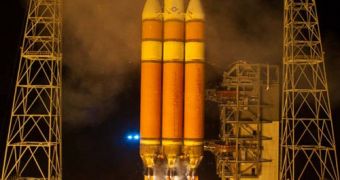According to an official at the private company United Launch Alliance (ULA), which is a joint venture between major corporations Lockheed Martin and Boeing, it would appear that more than 19 percent of the staff currently employed by the Alliance will be let go soon.
This means that, over the next couple of years or so, nearly one in five ULA workers will be fired from their jobs, as management is successful in identifying overlaps between various rocket programs.
Two of the most important products the Alliance sells are the Atlas and Delta rockets, which come in a variety of shapes and sizes. If experts manage to make their construction more efficient, then they could save both manpower and time.
The announcements related to the job losses that will affect the ULA were made recently by Dan Collins, who is the Chief Operating Officer (COO) at the company. He explains that efficiency will also get boosts through other means as well, such as developing new rockets.
ULA, which is based in Denver, has been providing launch vehicles for the US government for many years, and officials at both Lockheed and Boeing want to ensure that this remains possible.
After the new measures are taken, they will see the operating costs of ULA dropping off considerably. The positive aspect of the whole thing is that rocket prices will drop too.
These objectives are already turning heads in the rocket community, given that ULA has only been in business since December 2006. However, in the mean time, it managed to make a name for itself.
When comparing the current generation of rockets to the past one, experts say, prices are noticeably lower. ULA scientists say that their innovation will make prices even lower than they currently are.
Though it originally started with a workforce of 4,400 in 2006, ULA reduced its number of employees to 3,700 (current levels) over the past four years. The process will go on in the next couple of years as well, when ULA plans to let go about 700 people.
“In doing this, we've exceeded our promise on savings to the customer […] by 30 percent and over the five-year period on which the savings will be looked at, we're going to deliver nearly $800 million of savings due to the consolidation,” Collins says.
“I've heard it said that ULA just doesn't care about saving money, and I'll tell you, that's just not the case,” he goes on to add.
The example that ULA sets forth will undoubtedly be followed by companies such as Space Exploration Technologies Corp. (SpaceX) and Orbital Sciences Corp (OSC), which are competing with ULA for securing government contracts, Space reports.

 14 DAY TRIAL //
14 DAY TRIAL //